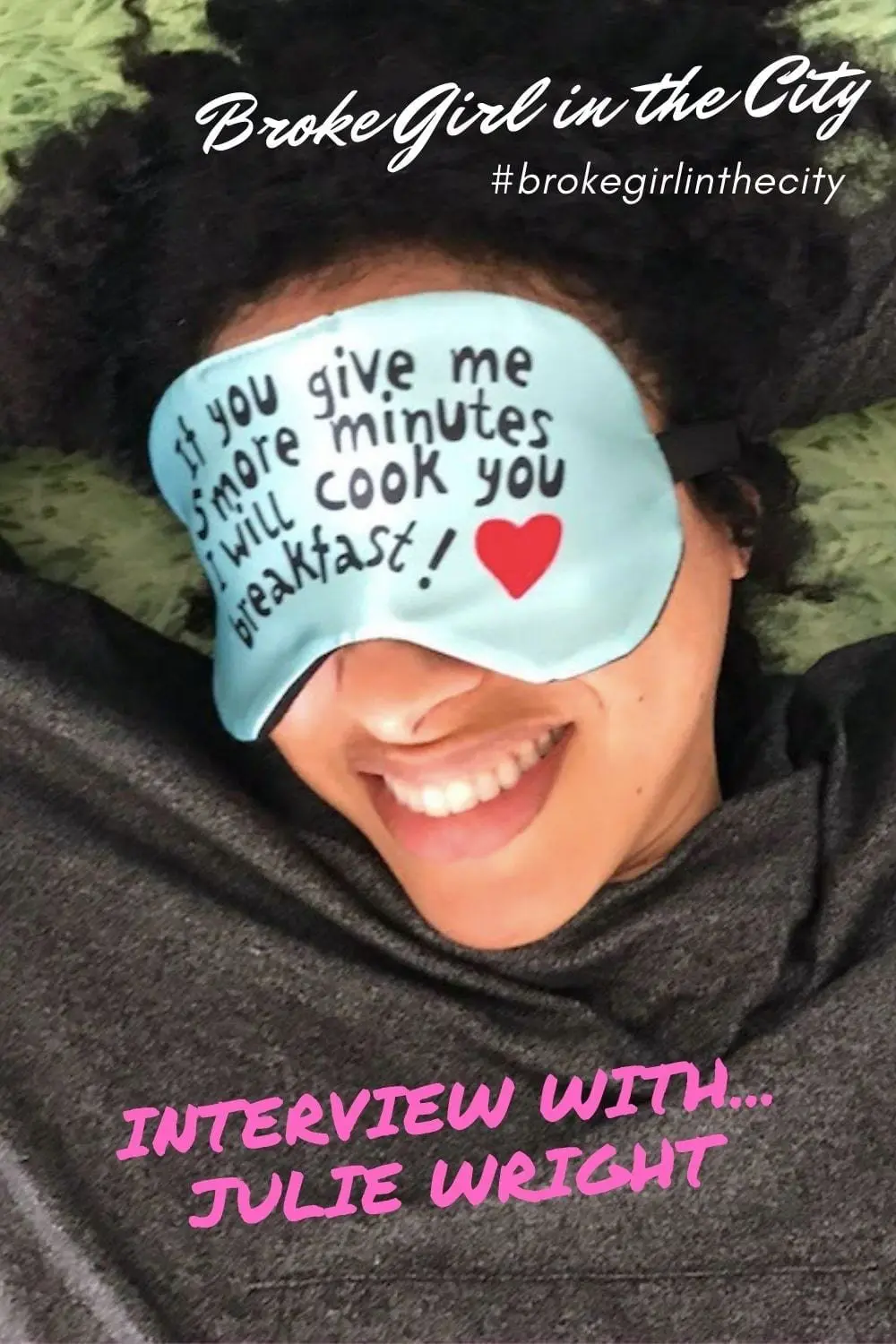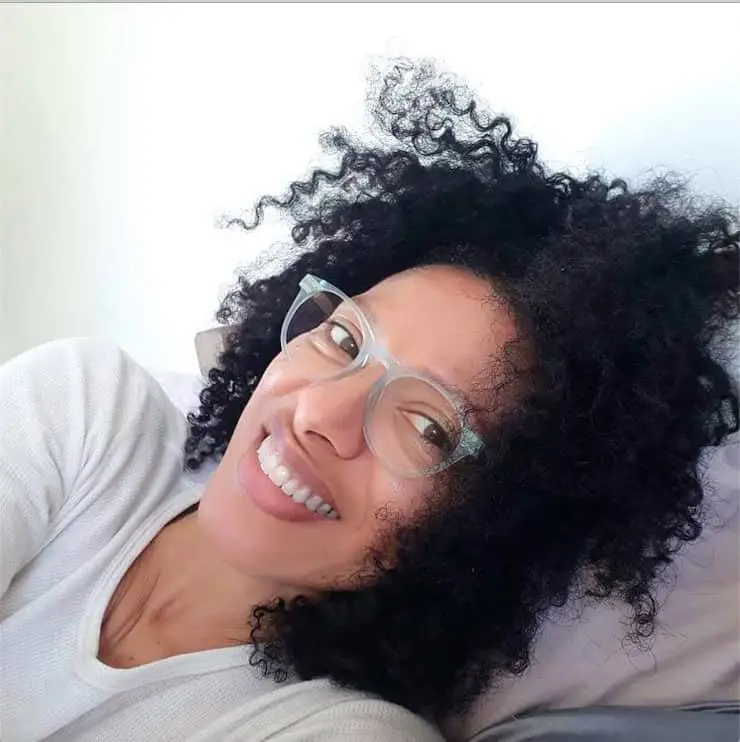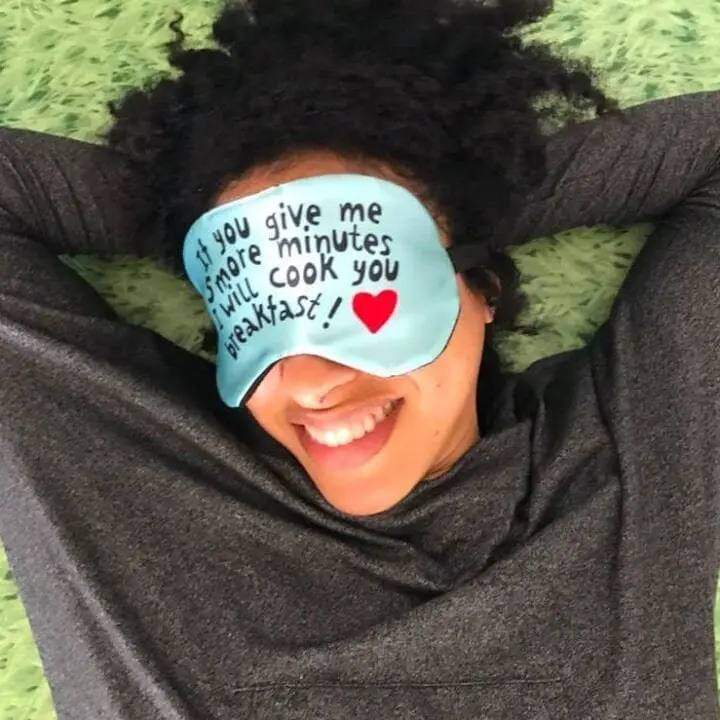
I got in touch with Julie to ask if I could interview her to let us know how we can get a better night’s sleep! It’s Mental Health Awareness Week and one of the key problems affecting us right now is sleep.
Interview with Julie Wright
Julie Wright is the Chief Sleep Orchestrator and founder of WeSleep. As a sleep educator and ambassador, her mission is to help people live better lives by improving their sleep. Her motto is: “Sleep, and your dreams will come true”
“Having battled with sleep issues for years, I embarked on a journey full of learning, discovery and therapeutic experiments to resolve them. This gave me the idea to help myself and others with the issue of insomnia and poor sleep quality, as a powerful and meaningful career ambition. The idea is to re-energize sleep-deprived individuals by teaching them how to sleep naturally for optimal physical and mental health. With a good night’s sleep, nothing can stop you, and you will most likely be able to achieve your life’s dreams. I believe sleep is one of the answers to becoming a superhuman.”

Can you tell me a bit more about WeSleep?
WeSleep brings sleep experts and therapists to you through learning sessions, experiential workshops, webinars and private consultations. These are for anyone who suffers from poor sleep whether the general public or employees at their workplace in start-up businesses, mid-size businesses, charities or corporations. Our educational format includes interactive workshops with talks, practical exercises, taster sessions and demonstrations, practical tips and takeaways.
We want to help anyone improve their sleep through education, inspiration and experimentation. It’s about being inspired from a wide range of perspectives, contemporary or ancient, from many cultures and approaches, whether scientific or empirical, behavioural or remedy-based. We offer an opportunity to pause, reflect, try new things, take a break, and recharge. And walk away with a personal sleep strategy.
Our website is www.WeSleep.co.uk and our social media is @WeSleepUK on FB, IG, Twitter and Linkedin.
You reveal that you have faced your own battles with insomnia and poor sleep. What inspired you to set up WeSleep and help others? How was it founded?
I founded WeSleep after brainstorming ideas for a business with a meaningful purpose on this planet. I was doing an amazing career change programme called Escape the City because I wanted to explore potential alternative career paths. My background as a media and entertainment business executive taught me a lot about creative industries such as music, film and TV, and doing business deals to deliver our messages, educate, entertain and make people feel good.
I was always passionate about health and well-being, and from personal experience, I knew that sleep is an essential component of living well. While most people focus on exercise and nutrition, sleep is a complex subject not as well known as it should be. I surrounded myself with knowledgeable scientists, experts and therapists and learnt so much. I researched the subject for 4 years, and I still do every day. Sleep makes people happier and all-around better people. It makes them healthier whether physically or psychologically. People who sleep well are more performant physically and mentally, more social and believe it or not more attractive (it was scientifically proven!). I understand insomnia from a personal perspective, which I later connected to my learning, training and business experience – so, creating a business on the topic of sleep made perfect sense to me
In the UK it’s Mental Health Awareness Week. Why is it that our sleep has been adversely affected by this crisis? The Global Lockdown has meant that people are not rushing around so much, but they are stressed in other ways. Can you give your thoughts on this too?
Yes, Mental Health Awareness Week is a fantastic idea to demystify mental health. This year’s theme is Kindness. It was originally going to be Sleep, but the organisation changed it to Kindness in light of the Coronavirus pandemic.
But going back to how sleep has been affected by this crisis, this is very much the case. We conducted polls targeting attendees of our workplace webinars recently, and the outcome is that 52% of them sleep worse, or sleep about the same but feel more worried, anxious and stressed than before it started.
This pandemic is a threat to our lives, causing uncertainty in our future, potential financial difficulties, physical isolation and a radical change to our lifestyle, all of which are causing much stress and anxiety and impacting a lot of people’s sleep. I was interviewed alongside sleep experts on How the coronavirus is costing us sleep in this article. In terms of being stressed in other ways, needless to say, that feeling confined at home, unable to connect with other humans physically (which is a physiological need to protect our species and reproduce), dealing with homeschooling and finding alternatives for all the usual things we do every day but from home is quite the challenge for anyone. I think the loss of control and fighting the invisible creates additional stress and fear which are the enemy of sleep.
What is your top tip for getting a good night’s sleep? What other advice do you have for other people?
To be honest you can read an entire book on sleep tips! The basics though are…
A sleep-friendly lifestyle: avoid all stimulants 4-6 hours before sleep (coffee, alcohol, cigarettes); avoid excessively stimulating activities in the hours before sleep including intense exercise; plan a 2-hour wind-down period with little to no exposure to screens or TV especially if it is too immersive. Maintain stable blood sugar throughout the day but avoid heavy foods and too much liquid too closer to bedtime.
Maintain a regular routine: same wake-up and bedtime every day including weekends. Ensure that you spend at least 30 minutes outdoors every day, rain or shine. And avoid naps, but if you really have to nap, then no longer than 30 minutes, no later than 4 pm. A sleep-promoting bedroom environment, meaning: pitch black dark, totally quiet, moderate temperature (16-21 °C), comfortable & quality mattress, well-ventilated, Sleep alone if necessary and do not use the bedroom for recreation or work, instead it should be strictly dedicated it to sleep and sex.
A quiet mind: create a sense of safety before bedtime, do whatever it takes to feel relaxed including breathing exercises, meditation, writing your journal, listening to calming music, sing! And definitely avoid obsessing over your sleep, let it happen, by itself.
You have a course The Science of Sleep. Can you tell me a little bit more about this? Why aren’t we sleeping? You mention that gut health is also linked to a good night’s sleep. What is the link and what can we do to improve this?
Yes, we teach the science of sleep because I firmly believe that to sleep better, we must first understand how our brains and bodies feed off each other to make us fall asleep or wake up. The sleep-wake process is complex. It is the result of a careful orchestration of processes. Exposure to light. A master clock ensuring regular timings, the production and release of the right hormones and neurotransmitters working for us at the right time of the day and night, our natural pressure to sleep, building during the day, and a nervous system activating or relaxing us at the right time. If anything goes wrong in this process, we are unlikely to sleep well. The sleep tips provided above should help, however.
90 to 95% of Serotonin is produced in the gut from the foods we eat. Serotonin is a precursor to melatonin which is our sleep hormone. Also, a lot of our emotions are experienced and felt in our gut. Finally, deep abdominal breathing is one of the best and fastest ways to relax us from stress and anxiety and helps us fall asleep.
As my blog is also about living in the city. What are your favourite things about living in the city/city life?
Well, at a time when the city is sooo quiet, I can’t make up my mind if I like it as vibrant and busy as it usually is, or quiet and peaceful which feels so relaxing! Living in the city gives me inspiration and creativity. I love being exposed to diversity and energy, and having a chance to meet people from all over and have unique experiences whether cultural, event-based, entertainment or experiential.
What is your top tip for living your best life?
Guess, what I am going to answer… SLEEP! haha.
What are your ambitions and plans for the future? Is there anything you would love to do?
I feel I am at the beginning of this journey of launching a business designed to help others feel and be better with improved sleep. There is a lot of work ahead. I do have many ideas on how to develop this concept further, so let’s see where I can take it. I am always looking for brilliant people who want to join me on this journey, so if someone reads this, feel free to contact me and see if we can collaborate in any way! And if every day, someone wrote to me to say how much better they feel as a result of what I do, it would make me feel complete.
I’d love it if people could join our social media or follow our blog, it would show us support, for which I would be very grateful! Check out our website and our social media is @WeSleepUK on Facebook, Instagram, Twitter and Linkedin.
And if anyone has any sleep questions or could use some help, get in touch. If any business wants us to come in or give a webinar for their staff on the topic of sleep, then do contact me at julie @ LibraRisingLimited .com or via the website. Thank you very much for inviting me to your blog Marie!

